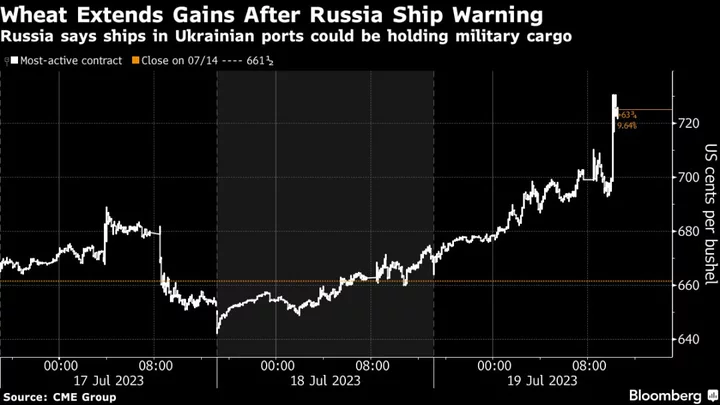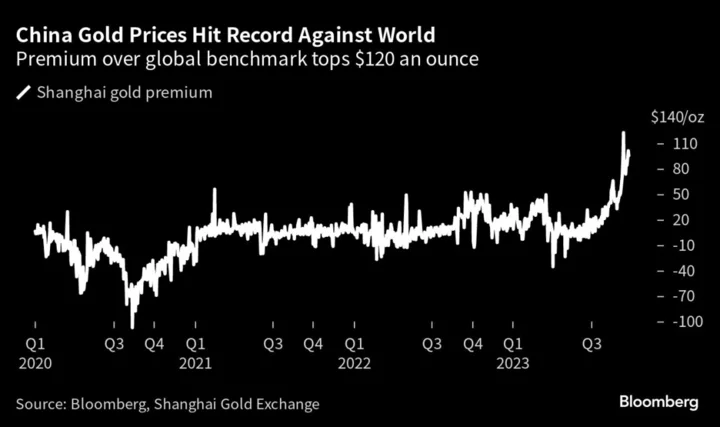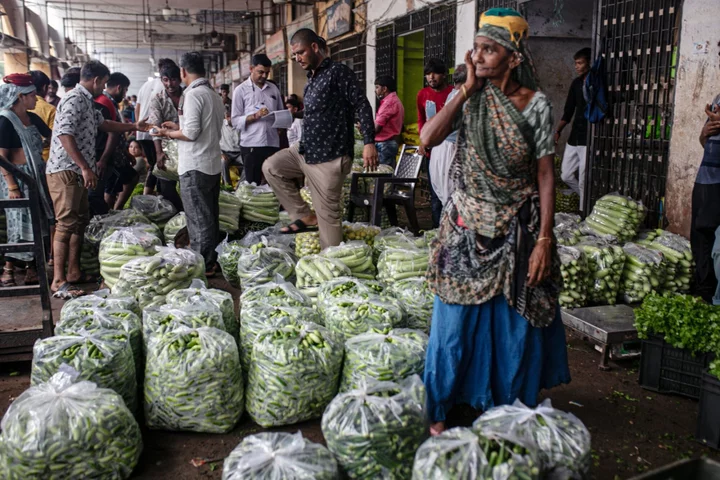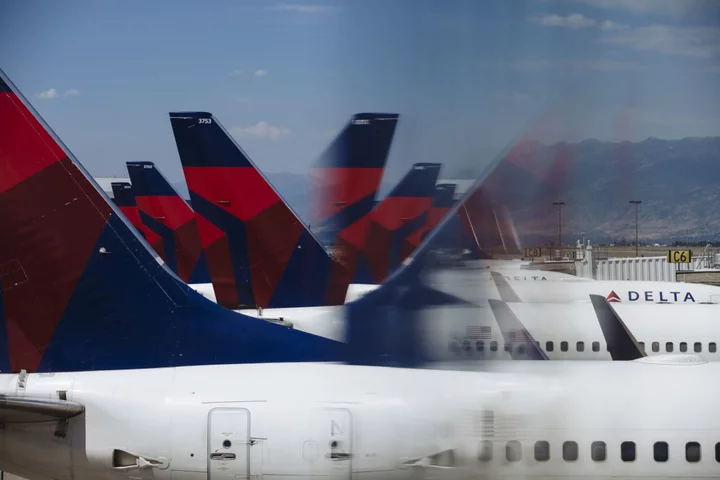Wheat futures soared as much as 9%, the biggest jump since 2012, as Russia threatened ships sailing to Ukrainian ports, escalating a conflict over exports from the key Black Sea region.
Russia’s defense ministry said that all ships headed to the ports from Thursday will be considered as potentially carrying military cargo. It also said flag countries of vessels sailing to Ukraine will be considered as on Kyiv’s side in the conflict. Chicago wheat prices, the global benchmark, quickly shot higher, rising by as much as the exchange limit. Paris wheat closed up 8.2%, the biggest gain since February 2022.
The move comes just days after Russia ended the Black Sea grain deal that had kept cargoes of staple crops flowing through the corridor. Wednesday’s escalation increases the war risks in the region and stands to quell even vague hopes for Ukraine to restart exports, heightening uncertainty over global food supplies.
“We saw it as unlikely that the grain deal would continue, but this is escalatory — after a number of escalations we’ve already seen,” said Michael Magdovitz, a senior analyst at Rabobank in London. Ukrainian farmers’ crops are “coming to harvest at the very time when their export capacity is being shut off,” he said.
Ukraine’s Black Sea ports are a vital artery for its grain sales abroad — historically accounting for the bulk of shipments — and the harvest season is now underway.
The Black Sea grain deal had helped to keep that trade flowing for a time, marking a rare example of Russian cooperation during its war in Ukraine. The accord collapsed this week after Moscow made good on a repeated warning that it would pull out of the pact, which was initially agreed a year ago. In the days since its withdrawal, Russia has repeatedly targeted Ukraine’s agriculture infrastructure — shelling ports and damaging crop terminals in what one major trader said would take “extensive time” to repair and will hamper trade for the longer-term.
While Ukraine can still ship grain by river, road and rail, it’s much more cumbersome and expensive than via its deep-sea ports. The corridor’s closure could slow the movement of crops from the upcoming harvest.
Together, Russia and Ukraine account for a whopping portion of the world’s agricultural shipments. In recent years, the nations exported so much wheat, corn, sunflower oil and other foods that the cargoes were equal to more than a tenth of all calories traded globally.
Some sea areas in the northwestern and southeastern parts of the international waters of the Black Sea have been declared temporarily dangerous for navigation, the defense ministry said on Telegram.
It would mark a dramatic escalation of Russia’s confrontation with Ukraine’s international allies if Moscow was to fire on any vessel that was carrying one of their flags. Russia’s defense ministry didn’t specify what it would do to any ships that try to enter the ports.
President Volodymyr Zelenskiy said earlier that Ukraine was studying options to get the grain corridor working again after Russia announced its exit from the deal on Monday, including possible convoys for ships, according to Interfax.
Read more: Ukraine Plea to Keep Grain Moving Clashes With Shippers’ Reality.
Shelling on Tuesday and Wednesday hit agriculture terminals in the ports of Odesa and Chornomorsk, two of the three that were operating under the grain deal, according to the Ukraine’s agriculture ministry. The damage knocked out a “significant part” of Chornomorsk’s grain-export infrastructure and destroyed 60,000 tons of grain there.
While Ukrainian harvests are already shrinking under the weight of the war, the country remains a significant global supplier — and counts on exports for a large proportion of sales. Curbing those flows could add further strain to farmers’ finances as they prepare to sow winter crops, such as wheat, in just a couple of months.
“I have no doubt if this continues you’re going to see massive financial challenges for Ukrainian farmers, who are going to say what’s the point of planting this,” Magdovitz said.
Author: Áine Quinn, Megan Durisin and Michael Hirtzer









